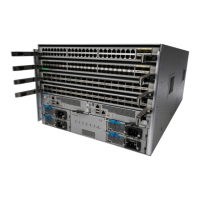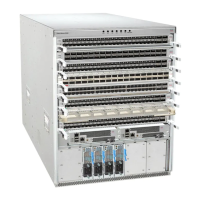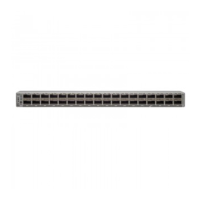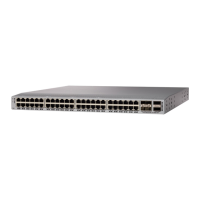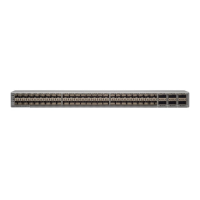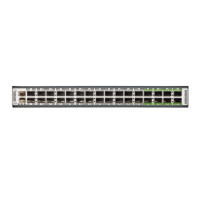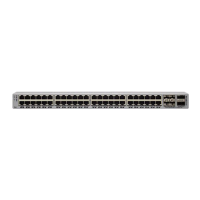Benefits of the IP Fabric for Media Solution
Cisco's IP fabric for media solution provides the following benefits:
•
Replaces specialized hardware (SDI routers) with a general-purpose switching infrastructure.
•
Supports various types and sizes of broadcasting equipment endpoints with port speeds up to 100 Gbps.
•
Provides up to 3.6 Tb of bandwidth to support the latest video technologies, including 4K and 8K ultra
HD.
For example, the bandwidth needed to replace an existing SDI router can be calculated
as follows: a 1024 x 1024 SDI router with HD flows would require a bandwidth
equivalent to 1024 x 1.5 Gbps = 1.5 Tbps. Using a Cisco Nexus 9236C switch as the
spine switch, the topology would support a bandwidth of 3.6 Tbps, or the equivalent of
a 2400 x 2400 SDI router.
Note
•
Scales horizontally. When you need more capacity, you can add a leaf switch to support more endpoints.
•
Provides a deterministic network with zero packet loss, ultra low latency, and minimal jitter.
•
Capable of synchronizing all media sources and receivers.
•
Provides deterministic failure handling that sends traffic to the receiver when a link fails between a leaf
and the spine.
•
Supports the coexistence of live and file-based traffic flows for post-production work.
•
Offers increased network security.
•
Provides a non-blocking network design to prevent the oversubscription of links.
•
Requires no changes to the existing operator workflow.
Cisco Nexus 9000 Series NX-OS IP Fabric for Media Solution Guide, Release 7.0(3)I4(2)
5
Overview of Cisco’s IP Fabric for Media Solution
Benefits of the IP Fabric for Media Solution
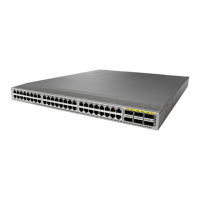
